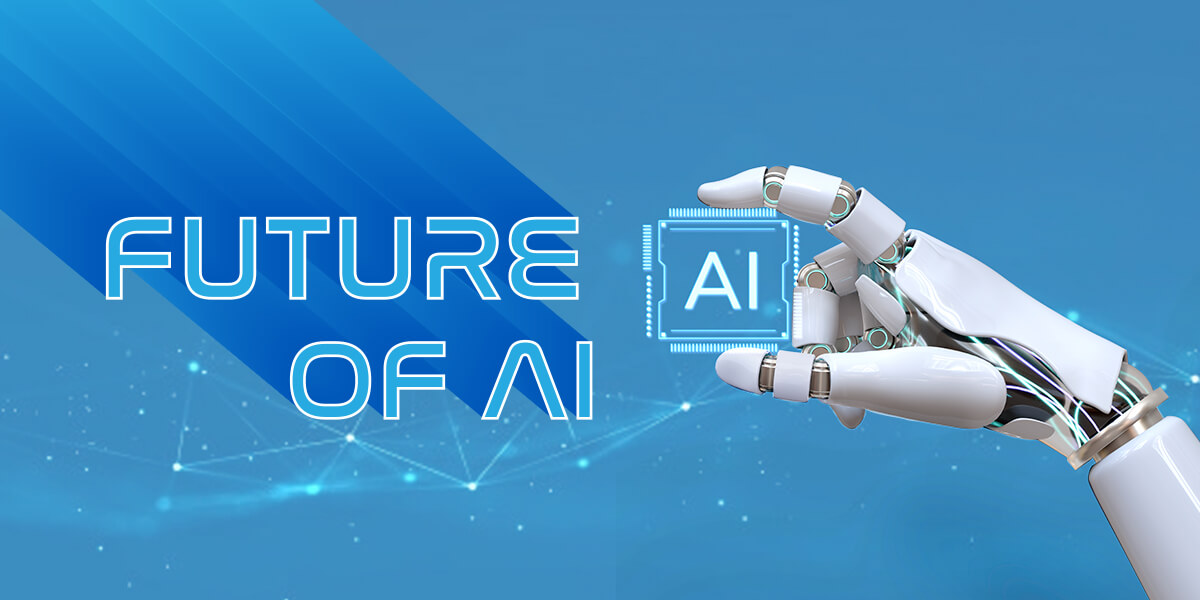The world has witnessed four major revolutions. These are:
- First revolution in 1784 – Introduction of the steam engine
- Second revolution in 1870 – Electric energy was produced
- Third revolution in 1969 – Information technology and electronics was used for production
- Fourth revolution at present – AI revolution
We have already witnessed what AI inventions are capable of doing. The future of AI is more promising than what we are experiencing right now. The future of AI has several more AI inventions coming up that will completely transform the way we live.
Beginning of the AI revolution – How did it all start?
AI in education, AI in healthcare, AI in finance, AI in manufacturing, AI in medicine – Artificial technology is everywhere. Many people are under the misbelief that artificial intelligence is a modern and recent concept. However, this is not true.
Artificial intelligence was known to scientists, programmers, and theorists since as early as the 1950s. This was a time when there were several AI inventions by scientists and researchers.
Here is a timeline that clearly indicates the AI revolution and evolution.
1950
Claude Shannon, known as the Father of Information Theory published an article titled ‘Programming a Computer for Playing Chess’. This was the first article where a chess-playing computer program was discussed.
The research paper ‘Computing Machinery and Intelligence’ was published by Alan Turing This proposal later on became the ‘The Turing Test’ that has become an indispensable part of the artificial intelligence field. This test measures the artificial intelligence of machines.
1958
McCarthy developed Lisp, a high-level programming language for AI research that is still used today.
1961
Ultimately, an industrial robot was created by George Devol. This robot became the first to work on the General Motors assembly line in New Jersey.
1964
Eliza, a natural language processing computer program and the first chatbot was developed by Joseph Weizenbaum, an MIT professor. Eliza engaged in conversations with human beings.
1970
The first anthropomorphic robot named ‘WABOT-1’ was created at the Waseda University in Japan. This robot could see, converse, and had movable limbs as well.
1997
Deep Blue, IBM’s chess playing computer emerged as the first system to win a chess match against a world champion.
2000
The robot ‘Kismet’ was developed by professor Cynthia Breazeal from MIT. This robot could detect and stimulate emotions through its face.
2002
Roomba, an autonomous robot vacuum cleaner, was released by i-Robot.
2011
Siri, a voice controlled personal assistant was released by Apple for their users.
2014
Microsoft released Cortana, a virtual assistant, while Amazon launched Alexa, a smart home assistant.
2016
Sophia, the humanoid robot was developed by Hanson Robotics. She is the first robot citizen with human-like features.
2018
BERT (Bidirectional Encoder Representations from Transformers), the first bidirectional, unsupervised language representation was developed by Google.
Samsung introduced a virtual assistant named Bixby.
What is the future of AI going to be like?
In the last decade, AI inventions have completely changed the world that we live in. Voice recognition which was merely a concept is now being used by everyone in day-to-day life all thanks to the AI revolution.
AI innovation has several novel things in store for personal life and businesses as well. The day is not far away when advanced AI will create an impact on every aspect of our lives.
Financial services
The use of AI powered FinTech solutions will completely transform personal finance to make financial services accessible to everyone and not just the rich.
Shopping
- Amazon is trying to make in-store physical shopping hassle-free and more convenient than online shopping.
- The use of various machine learning algorithms can enable brands and businesses to suggest the relevant products to shoppers, and ensure that a product is in-stock at the warehouse.
Medical diagnosis
- The use of advanced AI for diagnosing a disease or infection cannot be ruled out.
- Artificial intelligence can complement the intuition of a doctor by making things clearer with precision and accuracy.
Training for sports and games
- The use of advanced machine learning algorithms can help players train better by collecting data from smart bats, gloves, golf clubs, and balls as well.
- By watching the bat swing or ball release, AI can offer instant feedback to players and find out the gaps which they need to work on.
Running an organization
- Advanced AI can help choose the right talent for the right job, thus eliminating the need of having HR managers.
- Another study mentions that the use of advanced AI and information technology will make people so organized that the role of a manager will become less significant.
- It may also be possible to run an entire organization by just using artificial technology.
The future of AI is bright. The time is not very far when advanced AI will take over various sectors and completely control it with minimal or no human intervention.

